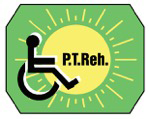


|
Current issue
Archive
Manuscripts accepted
About the journal
Editorial board
Reviewers
Abstracting and indexing
Contact
Instructions for authors
Publication charge
Ethical standards and procedures
Editorial System
Submit your Manuscript
|
4/2018
vol. 32 abstract:
Original paper
Women's Awareness of Physiotherapeutic Methods in the Treatment of Urinary Incontinence
Anna Katarzyna Cygańska
1
,
Daria Sobieska
2
,
Aleksandra Truszczyńska-Baszak
1
,
Paweł Tomaszewski
3
,
Katarzyna Krzysztoszek
3
Advances in Rehabilitation/Postępy Rehabilitacji (4), 21 – 27, 2018
Online publish date: 2019/03/20
View
full text
Get citation
ENW EndNote
BIB JabRef, Mendeley
RIS Papers, Reference Manager, RefWorks, Zotero
AMA
APA
Chicago
Harvard
MLA
Vancouver
Background
The article is devoted to the problems of urinary incontinence among women and their knowledge about the treatment of this disease. The authors sought to determine the current state of women's knowledge of the physiotherapeutic methods used in the treatment of urinary incontinence. The aim of the study was to examine women's awareness of methods of physiotherapeutic treatment of urinary incontinence. Materials and methods The study included 187 women with a locomotor diagnosis, aged 18-93 years currently being treated in a rehabilitation clinic. The subjects were divided into two groups: I – those with symptoms of urinary incontinence, consisting of 87 women and II – those without symptoms of urinary incontinence, healthy – consisting of 100 individuals. Results The general level of knowledge of women regarding physiotherapeutic methods of treatment of urinary incontinence was low. These women were not aware of the possibilities offered by physiotherapy in the treatment of urinary incontinence. Women do not know the latest methods used by physiotherapists in UI therapy. The problem of incontinence among women is significant and requires health professionals to increase women's awareness of this health issue. Conclusions 1. Women with urinary incontinence have low levels of awareness regarding preventive treatment methods. 2. Women with urinary incontinence too infrequently seek preventive treatment. 3. It appears justified to implement women's education in the areas of prevention and treatment of incontinence. 4. Raising women’s awareness regarding this intimate health issue is recommended. 5. Health education in the area of urinary incontinence may have a positive influence on reducing shame and anxiety. keywords:
urinary incontinence, women physiotherapy, pelvic floor muscles |
    |